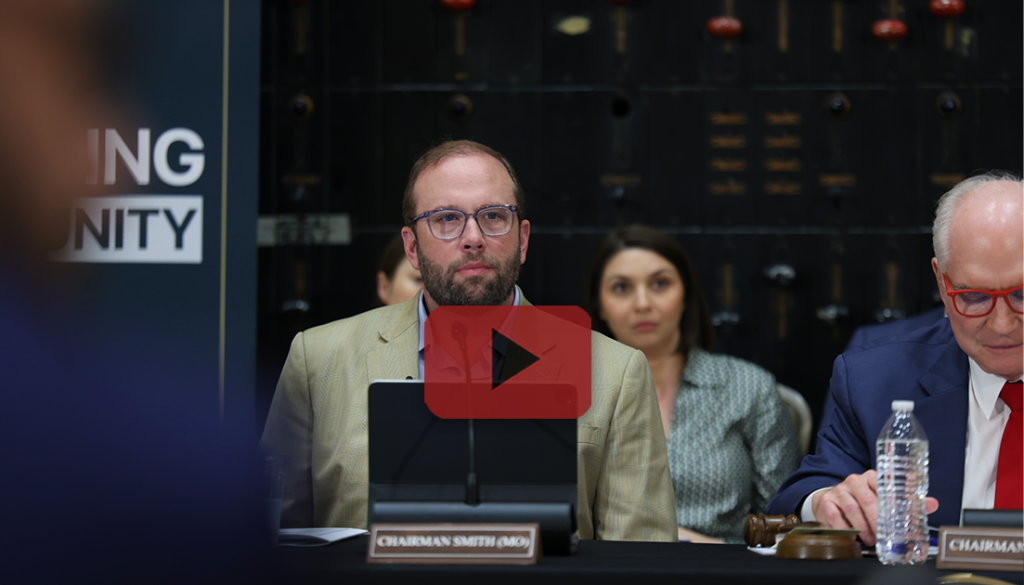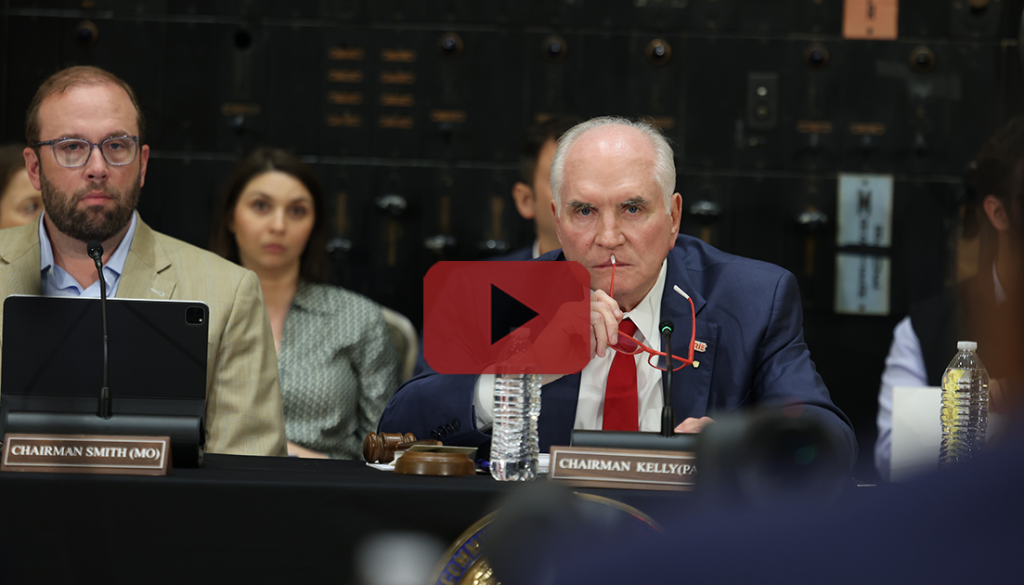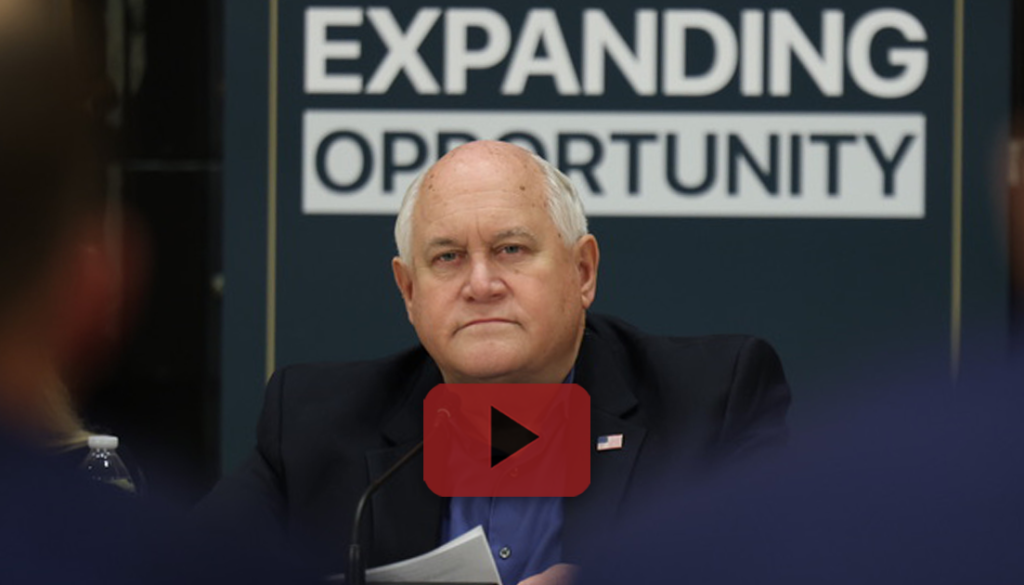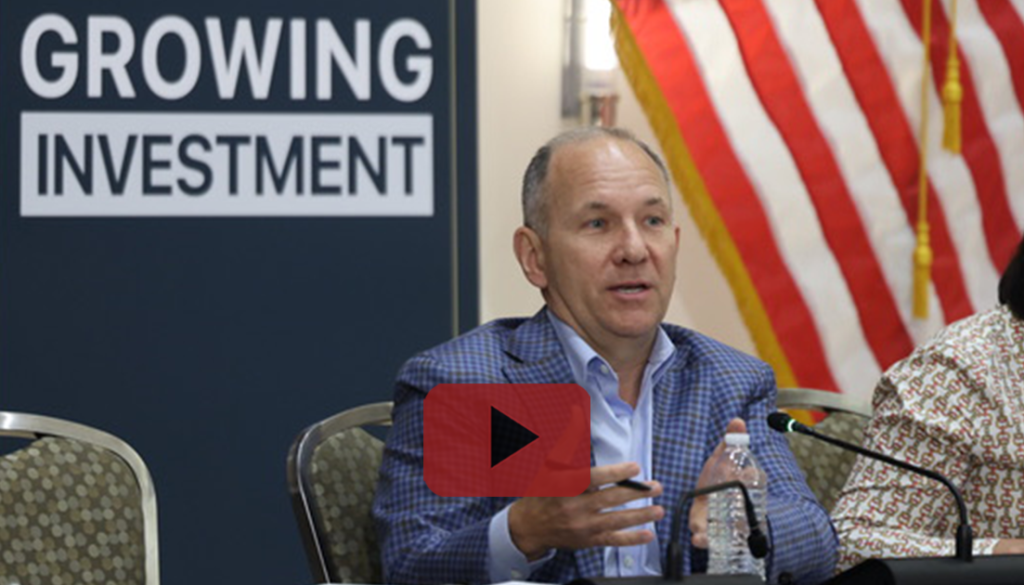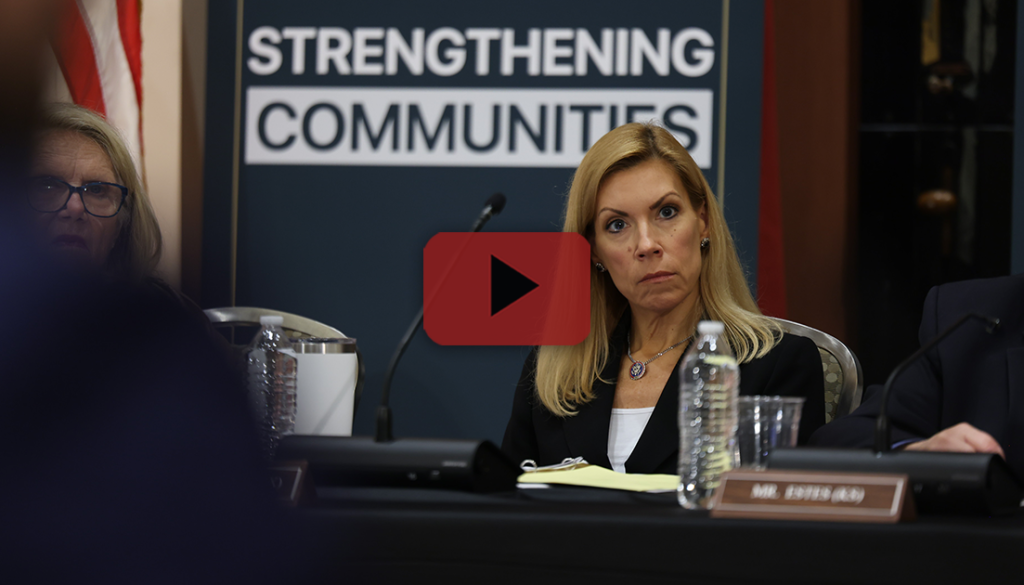Five Key Moments from Tax Subcommittee Hearing on Creating More Opportunity and Prosperity in the Rust Belt
ERIE, PENNSYLVANIA – In a city that once was home to America’s poorest zip code, the Ways and Means Tax Subcommittee held a hearing with local leaders and small business owners to learn more about how key tax provisions from the 2017 Trump tax cuts are reviving communities like Erie, Pennsylvania. The Trump tax cuts spurred investments in struggling neighborhoods and boosted wages. Following their enactment in 2017, not a single American corporation has moved overseas, reversing a decades-long trend that particularly hurt cities like Erie. The hearing is part of the Committee’s broader work to build on the success of the 2017 Trump tax cuts ahead of their expiration in 2025.
The 2017 Trump tax cuts included key incentives, such as the Opportunity Zone program, to bring new investment, businesses, and jobs to struggling and distressed communities. Before the hearing, members visited local businesses to see how they are creating prosperity in neighborhoods once marked by blight and poverty. Nationally, under the Opportunity Zone program, between 2018 and 2020, 3,800 communities received $48 billion in capital, to grow and create new jobs and opportunity. To further improve on the program, the Ways and Means Committee passed legislation last year to add greater transparency and accountability measures and expand it to incentivize investment in underserved rural communities.
“Better Position to Thrive:” Pro-Growth Trump Tax Cuts Benefit Blue-Collar Employers and Workers
Among the many pro-growth, pro-worker provisions of the Trump tax cuts are provisions small businesses benefited from such as research and development expensing, interest deductibility, and increased death tax relief. In response to Ways and Means Committee Chairman Jason Smith (MO-08), a second-generation Erie manufacturer testified about the difference the Trump tax cuts made for his business and workers, and how it allowed him to buy equipment that powered productivity and created more high-skill, blue-collar jobs.
Chairman Smith: “The Opportunity Zone Program has not operated in a vacuum. It was created as part of the Trump tax cuts, which provided critical tax relief to working families as well as businesses that employ them, including research and development expensing, which supports 21 million jobs, 100 percent immediate expensing on equipment, interest deductibility, death tax relief, and the 20 percent small business deduction of the 199A. Mr. Treadway, can you share how these pro-growth tax policies worked in tandem with the Opportunity Zone program to benefit your family-owned small business and others like it?”
Tom Tredway, Pennsylvania manufacturer: “The pro-growth tax strategies from the TCJA put us in a better position to thrive. We had good things going our way. Having incentives to do research and development, having incentive to make capital investments that we need as a small business to compete both domestically and internationally, all allowed us to put more money back into our employees, back into our company.”
A Recipe for Small Business Success
Jason Spore started his pizzeria in a food truck and later opened a brick-and-mortar location in downtown Erie’s new food hall. In his testimony, Spore shared how Opportunity Zones have helped make the city “a vibrant place to live, work, and play.” In a response to Tax Subcommittee Chairman Mike Kelly (PA-16), Spore credited the program with helping his business experience quick success and become part of Erie’s economic comeback.
Rep. Kelly: “Jason, I want to ask you: without the Opportunity Zones, what would the future of Ippa Pizza be?…If it hadn’t been for Opportunity Zones, would you have been able to do this?”
Jason Spore, pizzeria owner: “I’m a pretty resilient guy. I fight hard. Sometimes I don’t know when to give up, so I would hate to say no. What I will tell you is that the speed of what I’ve been able to do and how fast I’ve grown, the EDDC, [Erie Downtown Development Corporation] the help that they’ve given and created for me has been paramount. No way I could do it the way that I’m doing it now.”
Expiration of Trump Tax Cuts Could Lead to R&D Recession
The 2017 Trump tax cuts allowed businesses to immediately expense research and development costs to make American businesses more productive and more competitive against foreign competitors, like China. Roughly 75 percent of R&D expenditures go toward wages and salaries and support 21 million total jobs. The lapse of immediate R&D expensing has hurt businesses that faced an unexpected higher tax bill, simply for hiring the workers needed to become more innovative. As Rep. Ron Estes (KS-04) noted, this has led to a dramatic slowdown in R&D in America. If the Trump tax cuts expire, more businesses, particularly manufacturers, will face a tough choice between investing in research and development and paying more taxes or falling behind their competitors.
Rep. Estes: “Since [research and development] amortization took effect, the growth rate of research and development has slowed dramatically from 6.6 percent, on average, over the previous five years, to less than one-half of one percent over the last 12 months. As companies spend far less on research and development, the sector is down by more than 14,000 jobs. Three-quarters of research and development spending is on wages and salaries, making R&D amortization, primarily a jobs issue. Mr. Treadway, as a businessman in the in the manufacturing space, can you tell us how the expiration of the provisions has impacted Erie Molded Packaging?”
Tom Tredway, Pennsylvania manufacturer: “For Erie Molded, the first year sort of caught us off guard. Immediately, we got a tax bill we weren’t expecting. Now, we can, of course, appreciate those expenses down the road later, but I need to make those decisions now and have that money to reinvest in my company and my people. Initially, it was money out of our pocket that we were not expecting. Looking to the future, we’ll still do some R&D, we’re going to look at it differently. It’s different math now. For us, it’s 90 percent. Sounds like the industry average is 75 percent goes to wages. I know that the more I put in R&D, the more I’m setting myself up for a higher tax bill every year. So it’s going to change the math for us. It’s a big problem.”
Small Business Deduction Critical to Helping Small Businesses Compete Against Large Corporations
Small businesses received tax relief from the 20 percent small business deduction from the 2017 Trump tax reform. A lower tax burden is especially needed at a time when Main Street is facing the twin problems of Bidenflation and high interest rates. If this critical tax relief expires, small businesses could face a tax rate as high as 43.4 percent, a rate higher than that paid by large corporations. A small business owner shared with Rep. Lloyd Smucker (PA-11), chair of the Main Street Tax Team, how this deduction is a keystone for the survival of his business and jobs of his employees.
Rep. Smucker: “I want to get back, Mr. Treadway, to the 199A. We’re gonna have to build support for that. We’re going to have people understand, even business owners, understand the impact of that…We’re working right now; we have tax teams that Chairman Smith has put together. We want to take this out and have people understand, the American people really understand the importance of this policy. Do you have any ideas for us? How do we how do we get out and talk about this?”
Tom Tredway, Pennsylvania manufacturer: “It’s not the most straightforward of all the tax code, but it makes a ton of sense. For small businesses like us competing against corporations, if we don’t keep that in place, we’re now losing another step on the ladder when it comes to how we’re taxed.”
President Biden’s Tax Hike Will Hurt Small Businesses
Small businesses need investment and capital to grow, expand, and hire employees. The barriers to accessing capital are often higher in distressed neighborhoods. The Biden Administration wants to raise the bar even higher with the President’s largest proposed tax hike on small businesses in American history. As Rep. Beth Van Duyne (TX-24) highlighted, Democrats’ attempt to soak Main Street with high taxes will lead to fewer small businesses in communities that could most benefit from new jobs and economic opportunity.
Rep. Van Duyne: “One of the areas I hope to address is looking at how small businesses access capital and the threats we see from this Administration. We even saw this a few weeks ago from the Treasury who repeated misguided attacks on the carried interest loophole. We’ve also seen this in every single budget that’s been put out by this President. Mr. Whiting, you started a venture fund to help provide capital to start companies. Can you discuss the challenges that some of these small businesses face and what would happen if we allow the 2017 tax cuts to expire?”
Drew Whiting, Erie civic leader: “The challenges that they face are in getting the risk capital needed to grow, not at the very early stage, not when they’ve reached a point of somewhat success and product market fit. It’s really in that space, where they need angel investors and community investors to come to the aid of those companies.”

